
Cultural Issues Derail Digital Transformations
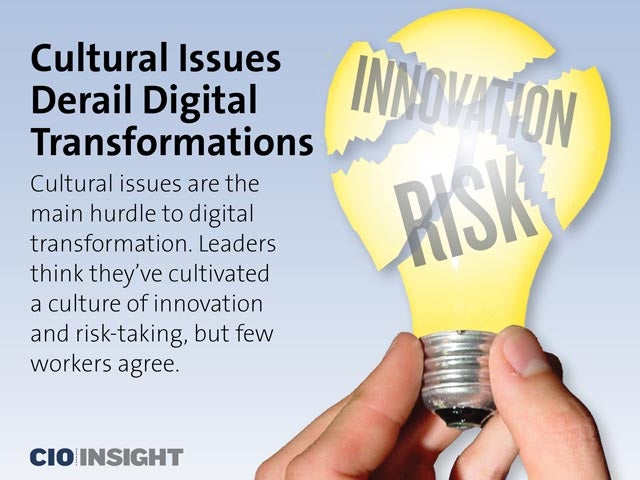 Cultural Issues Derail Digital Transformations
Cultural Issues Derail Digital Transformations
Cultural issues are the main hurdle to digital transformation. Leaders think they’ve cultivated a culture of innovation and risk-taking, but few workers agree.
 High and Low
High and Low
40% of the global senior executives and managers surveyed believe there is a high prevalence of digital culture in their company, but only 27% of employees agree.
 Biggest Hurdles to Digital Transformation
Biggest Hurdles to Digital Transformation
Cultural issues: 62%,
Archaic IT systems and apps: 48%,
Lack of digital skills: 43%,
Absence of clear leadership vision: 38%
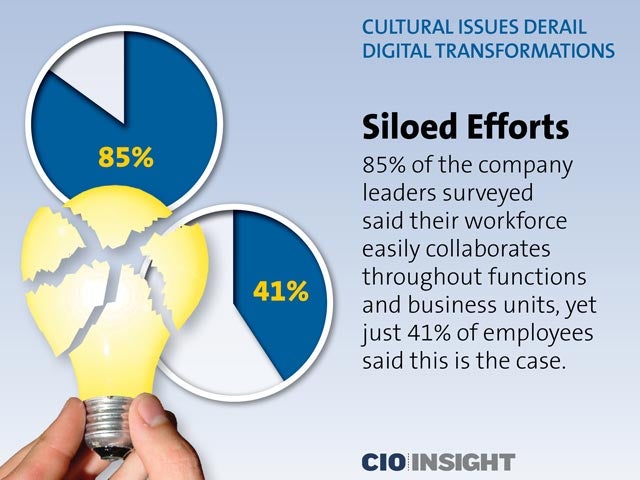 Siloed Efforts
Siloed Efforts
85% of the company leaders surveyed said their workforce easily collaborates throughout functions and business units, yet just 41% of employees said this is the case.
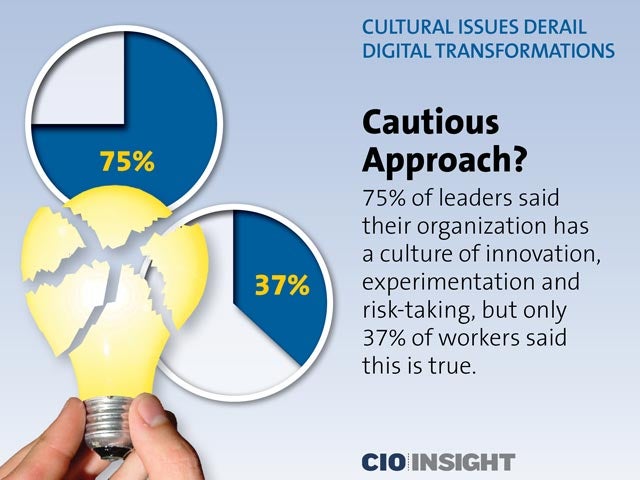 Cautious Approach?
Cautious Approach?
75% of leaders said their organization has a culture of innovation, experimentation and risk-taking, but only 37% of workers said this is true.
 Timely Issue
Timely Issue
74% of business leaders said their employees can set aside time from core work to innovate, but just 42% of employees said they can do this.
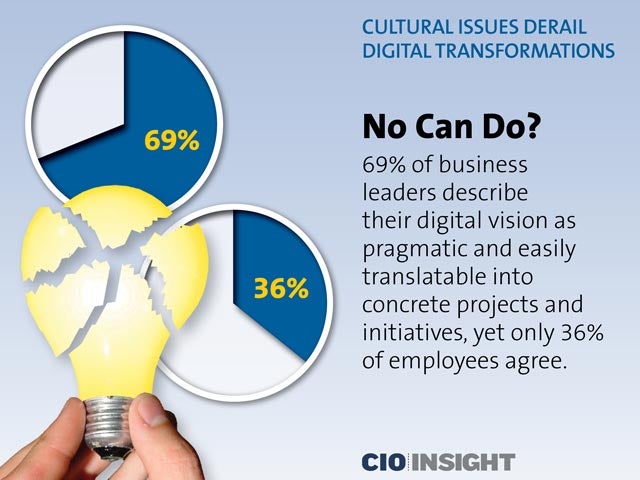 No Can Do?
No Can Do?
69% of business leaders describe their digital vision as pragmatic and easily translatable into concrete projects and initiatives, yet only 36% of employees agree.
 Red Tape
Red Tape
66% of corporate leaders said their employees don’t have to deal with bureaucracy to submit ideas, but just 32% of workers said that’s the case.
 Bumpy Road
Bumpy Road
64% of business leaders said there are dedicated avenues in their company to share innovative ideas with top executives, yet only 32% of employees agree.
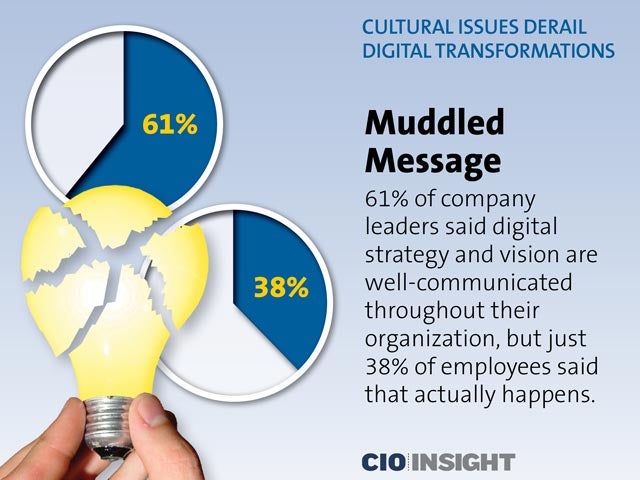 Muddled Message
Muddled Message
61% of company leaders said digital strategy and vision are well-communicated throughout their organization, but just 38% of employees said that actually happens.
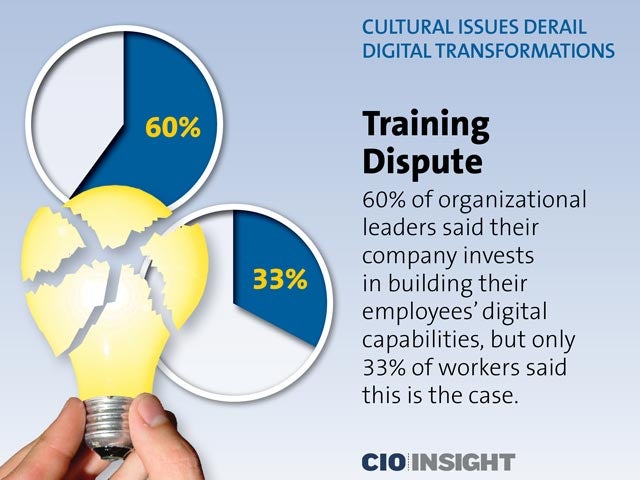 Training Dispute
Training Dispute
60% of organizational leaders said their company invests in building their employees’ digital capabilities, but only 33% of workers said this is the case.